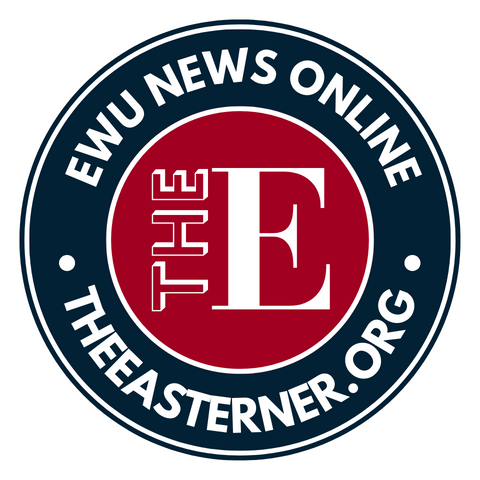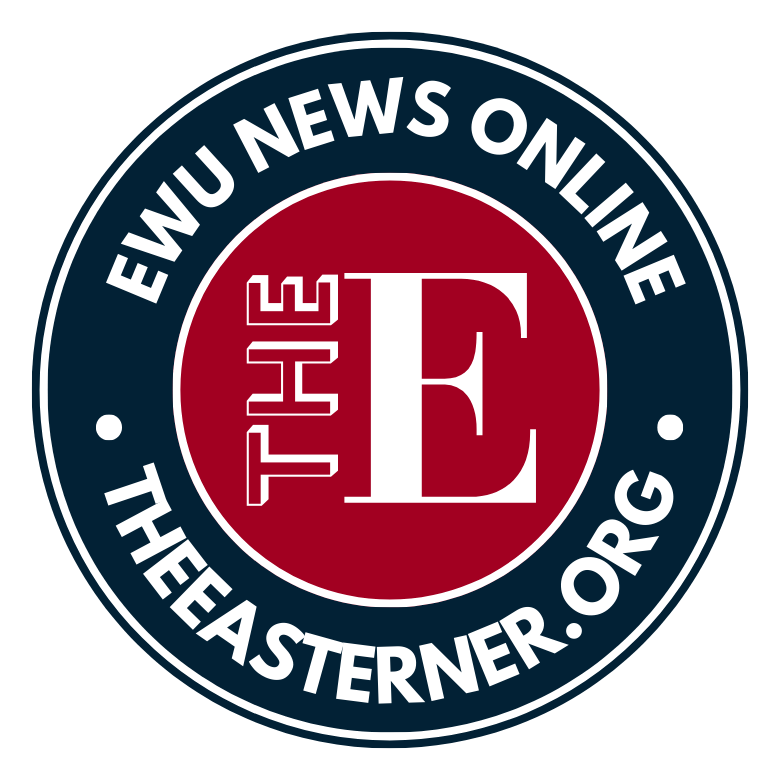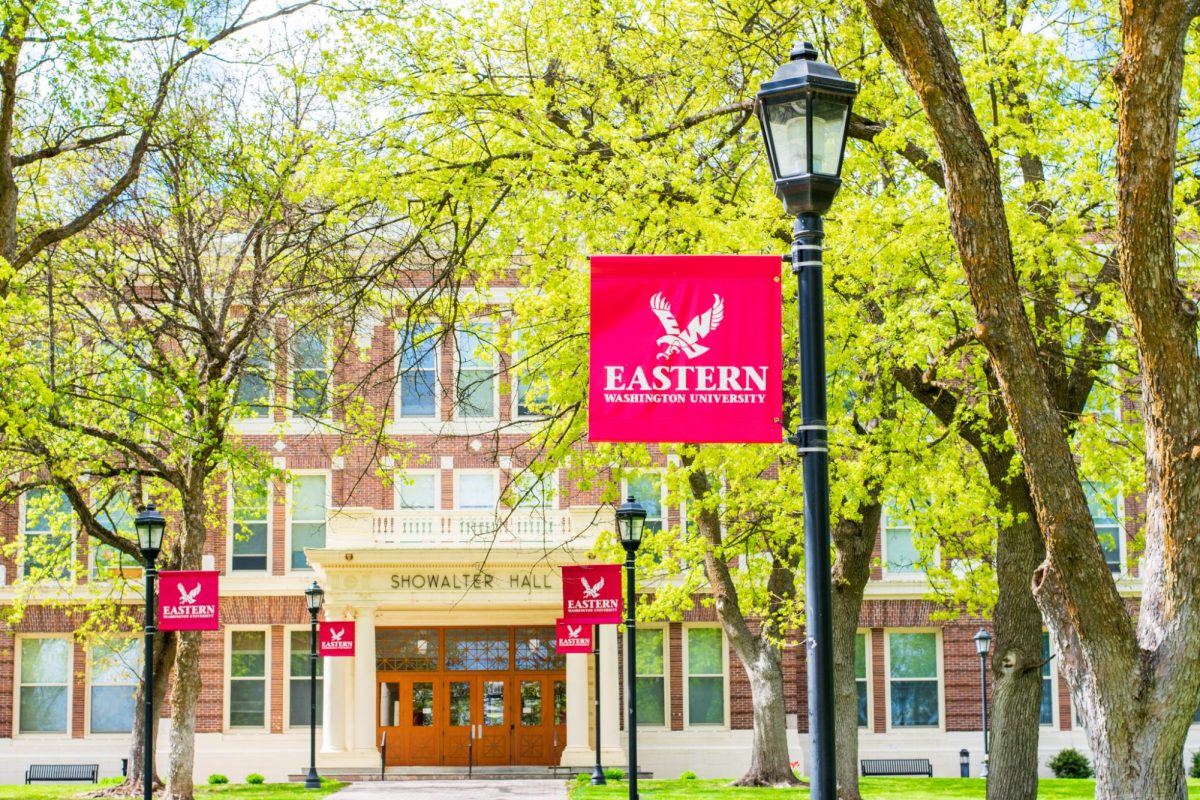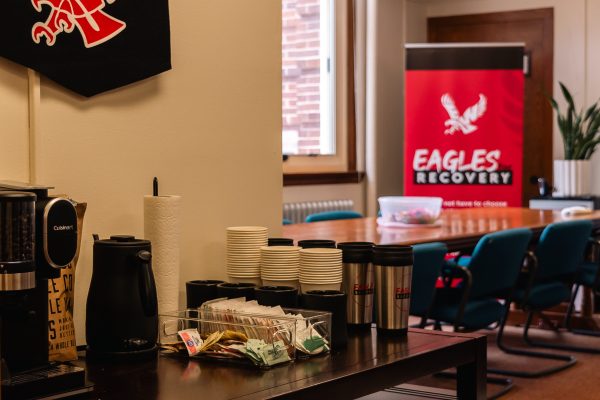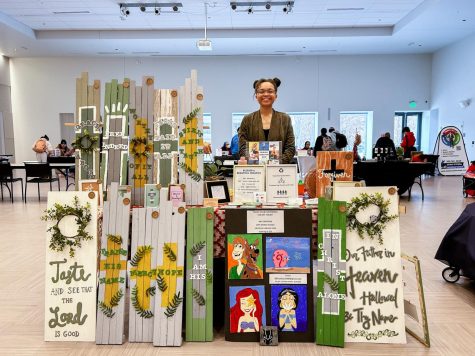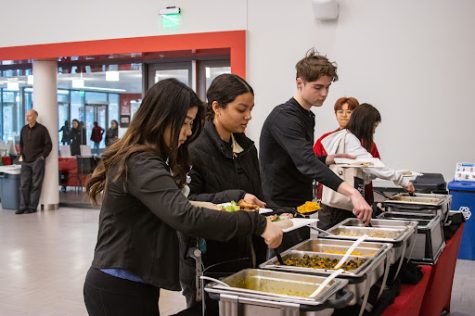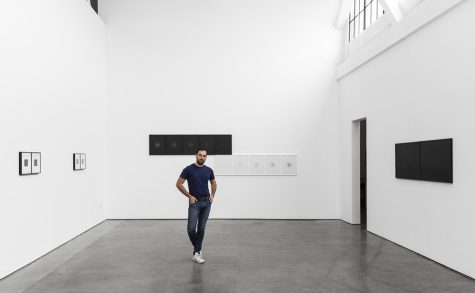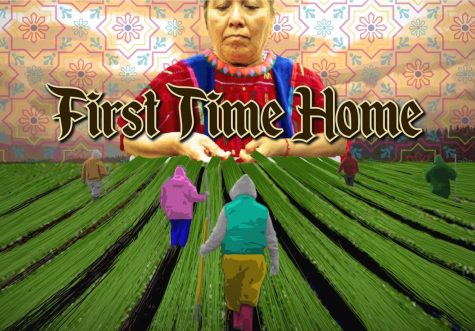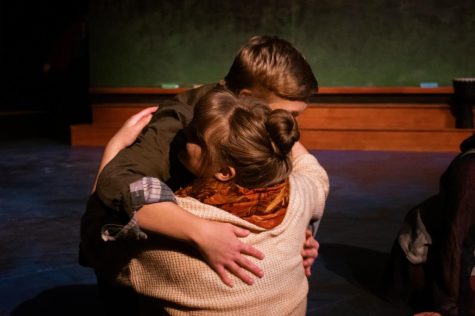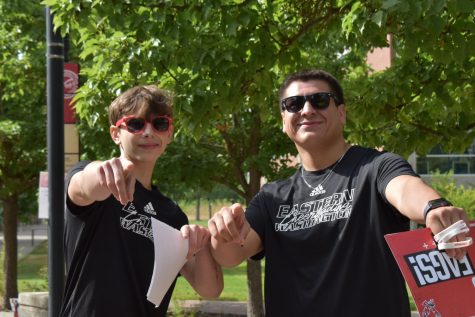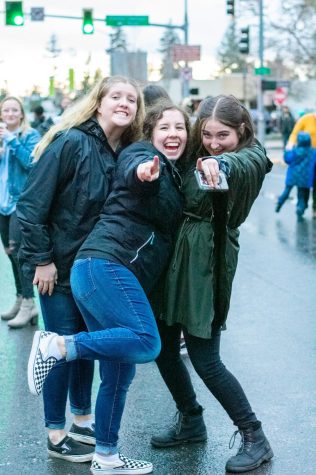Black Lives Matter Teach-in sheds light on racial injustice
January 26, 2015
Approximately 120 students filled the seats, the back and the aisles of Patterson 126 to participate in the Black Lives Matter Teach-In, an event intended to foster meaningful campus dialogue around racial justice.
On Jan. 16 at 11 a.m., four panelists from the EWU and Spokane communities presented at the Teach-In followed by a panel of four students from Eastern’s Black Student Union (BSU).
The first presenter was Mary Lou Johnson from Smart Justice Spokane, who spoke about ways to improve and fix the justice system in the U.S. as well as the efforts her organization, Smart Justice Spokane, has made to attempt to implement some of those changes in Spokane.
“Our goals are, briefly, to reform the system,” Johnson said. “We want to achieve racial equity. We want to use non-arrest and non-jail solutions, increase treatment, restructure the system and increase employment for those coming in contact with the system.”
Johnson asked the audience what problems they had observed with the current justice system in the U.S. Two of the main issues were racial inequity — people of color are arrested in significantly higher numbers than white people — and the use of arrests and jail sentences for relatively minor offences. Johnson spoke about both of these topics in her presentation, focusing on how Smart Justice Spokane’s members believe those issues and others can be fixed.
After Johnson, Scott Finnie, Ph.D.,director of the Africana Studies Department at Eastern, gave his presentation on the history of racism and police brutality in the U.S. Early in his presentation, Finnie mentioned a conversation he had with EWU Police Chief Tim Walters on police brutality.
“I was talking with the police chief last week; he mentioned the problem is the mentality of officers,” Finnie said. “When it changes from guardian to warrior, that’s the issue.”
Problems begin to surface when that mentality shift combines with racism, corruption and manipulation, Finnie said. And while abuse of power and authority may happen in any number of settings—politics and classrooms were two examples Finnie gave—the big question is how to handle it when it occurs with police officers.
Krista Benson, who followed Finnie, spoke on the history of law enforcement’s militarization coupled with a disproportionate focus on minority communities and addressed the various legal apparatuses that converged to erode individual rights and systemically target people of color.
According to Benson, the first “stop and frisk” law, a measure that allows law enforcement officers to stop anyone on the street and frisk them for contraband, was enacted in 1964. By 1968, provisions requiring law enforcement to have “reasonable suspicion” that the person was engaged in criminal activity were removed.
Rachel Dolezal, president of the Spokane NAACP chapter, was the final speaker.
“Silence is consent,” said Dolezal, emphasizing the need for everyone to speak out against injustice. She also spoke on the disproportionate sentencing of African-Americans for comparatively minor crimes in comparison to white Americans.
As an example of this racial disparity in the application of justice, Dolezal cited the cases of Ethan Couch and Ivins Rosier. Ethan Couch was sentenced to ten years of probation and rehab after killing four people in a drunk-driving accident at the age of 16. Ivins Rosier, also 16 when he shot a retired police dog while committing a burglary, was sentenced 23 years in prison. Couch was white, Rossier was black.
All four speakers, the inequity in sentencing is really only the tip of the iceberg in regards to issues of racism in law enforcement, and the justice system in general. According to Dolezal, the same number of blacks are killed by law enforcement today as were lynched during the height of the lynching era.
Dolezal suggested that the undervaluing of black life is not only a mindset within the justice system, but ingrained in western culture. Dolezal noted how the heavy news coverage of the Charlie Hedbo massacre, in which twelve were killed, completely eclipsed news coverage of the Boko Haram massacre in Nigeria, in which more than 2,000 people were brutally murdered. Dolezal said this disparity of coverage exemplifies the many ways in which black lives are undervalued and ignored, even in the face of great tragedy.
After the presenters, a panel of students from the BSU responded to the presentations. The panel included Satori Butler, Arial McMillan, Lanae Dedmond and community member Joseph King.
The panel was a reaction and a discussion in conjunction with the presentations.
McMillan spoke on the adversarial nature of most discussions around racial injustice. “The thing that disturbs me the most comes down to the instant reactions and the blockades we put up. We don’t listen to each other,” said McMillan.
Nick Bickley, an EWU police patrol officer, attended the Teach-In along with Chief of Police Tim Walters. Bickley said he would attend another Black Lives Matter event.
“I think it’s important to be educated on both sides,” Bickley said. “…[W]e have the ability to take people’s freedom away, and that’s a big deal. So should police officers be held to a higher standard? Absolutely.”
